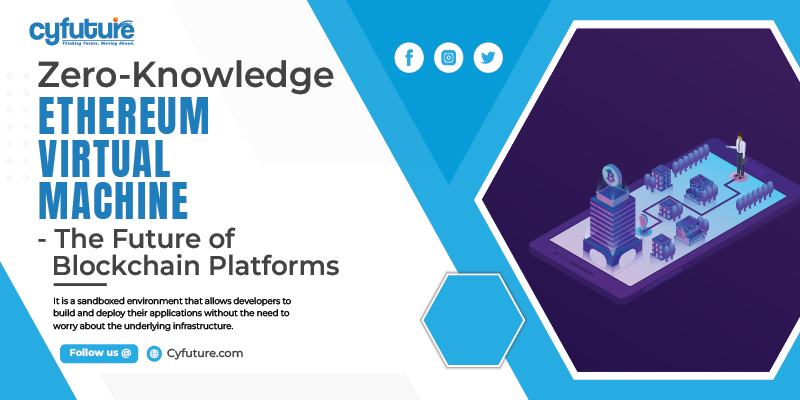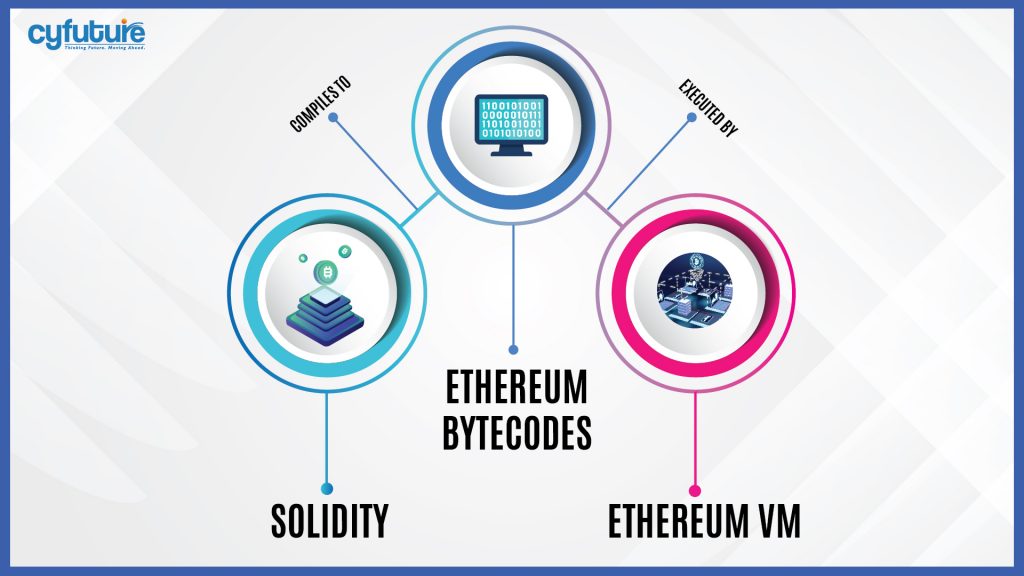-
Get Cloud GPU Server - Register Now!
Toggle navigation

Ethereum is a decentralized, open-source blockchain platform that enables the creation of smart contracts and decentralized applications (dApps). It was created in 2015 by Vitalik Buterin and has become one of the largest and most widely used blockchain platforms.

The Ethereum Virtual Machine (EVM) is the runtime environment for smart contracts on Ethereum. It is a sandboxed environment that allows developers to build and deploy their applications without the need to worry about the underlying infrastructure.
Smart contracts on Ethereum are written in high-level programming languages, such as Solidity, and are then compiled into bytecode that can be executed by the EVM. The EVM is a decentralized, global network of computers that runs this bytecode and ensures that it is executed as intended. This allows developers to build applications that are transparent, reliable, and resistant to censorship or tampering.
In addition to running smart contracts, zero-knowledge EVM is also responsible for verifying and validating transactions on the Ethereum blockchain. It ensures that all transactions are valid and that the execution of smart contracts does not violate any rules or conditions that have been outlined in their code.
A zero-knowledge proof is a method by which one party (the prover) can prove to another party (the verifier) that a statement is true, without revealing any additional information about the statement itself. This allows the prover to prove the validity of a statement without revealing any sensitive or private information.
One common example of a zero-knowledge proof is the “proof of knowledge” protocol, in which the prover demonstrates that they possess certain knowledge or information, without revealing what that knowledge or information is. This can be useful in situations where the prover wants to prove that they know a secret password or have access to a particular piece of information, without actually revealing the password or information to the verifier.
In the context of the Ethereum Virtual Machine (EVM), zero-knowledge proofs can be used to verify the execution of smart contracts without revealing the contents of the contracts themselves. This allows developers to build private or confidential applications on the Ethereum platform, while still ensuring that the execution of the contracts is transparent and verifiable.
For example, a developer could use a zero-knowledge proof to verify that a smart contract has been executed correctly, without revealing the specific terms or conditions of the contract to the verifier. This could be useful in situations where the contents of the contract are sensitive or proprietary, and the developer does not want to disclose them to the public.
There are several different methods for constructing zero-knowledge proofs, including interactive proofs, non-interactive proofs, and probabilistic proofs. The specific method used will depend on the requirements and constraints of the application.
There are several benefits to using zero-knowledge techniques in the Ethereum Virtual Machine (EVM), including increased privacy and security.
One of the main benefits of zero-knowledge proofs is that they allow for increased privacy on the Ethereum platform. By using zero-knowledge proofs to verify the execution of smart contracts, developers can build private or confidential applications on the Ethereum network, without revealing the specific terms or conditions of the contracts to the public. This can be useful in situations where the contents of the contracts are sensitive or proprietary, and the developer does not want to disclose them to the public.
Another benefit of zero-knowledge proofs is that they can improve the security of the Ethereum platform. By using zero-knowledge techniques to verify the execution of smart contracts, the Ethereum network can ensure that all transactions are valid and that the execution of contracts does not violate any rules or conditions that have been outlined in their code. This can help to prevent fraud and other security vulnerabilities on the Ethereum platform.
In addition to these benefits, zero-knowledge proofs can also improve the scalability and efficiency of the Ethereum network. By allowing for the verification of smart contracts without revealing their contents, zero-knowledge proofs can reduce the amount of data that needs to be stored on the Ethereum blockchain, which can help to reduce the burden on the network and improve its overall performance.
Overall, the use of zero-knowledge techniques in the EVM can provide a range of benefits, including increased privacy, security, scalability, and efficiency.
There are several ways in which zero-knowledge techniques can be used in the Ethereum Virtual Machine (EVM) to verify the execution of smart contracts without revealing their contents.
One example of this is the use of zero-knowledge proofs to verify the execution of private or confidential smart contracts. By using a zero-knowledge proof, a developer can demonstrate to the Ethereum network that a smart contract has been executed correctly, without revealing the specific terms or conditions of the contract to the public. This can be useful in situations where the contents of the contract are sensitive or proprietary, and the developer does not want to disclose them to the public.
Another example of using zero-knowledge techniques in the EVM is to verify the execution of smart contracts that contain sensitive or personal information. For example, a developer could use zero-knowledge proof to demonstrate that a contract has been executed correctly, without revealing the specific personal information contained within the contract. This could be useful in situations where the contract contains sensitive data, such as medical records or financial information, and the developer wants to ensure that the data is protected from unauthorized access.
Overall, there are many potential uses for zero-knowledge techniques in the EVM, and the specific applications will depend on the needs and goals of the developer and the requirements of the application.
There are several limitations and challenges to implementing zero-knowledge techniques in the Ethereum Virtual Machine (EVM).
One of the main challenges of using zero-knowledge proofs in the EVM is that they can be computationally intensive, which can impact the performance and scalability of the Ethereum network. Constructing and verifying zero-knowledge proofs requires significant computational resources, and this can increase the burden on the network and slow down the execution of smart contracts.
Another challenge of using zero-knowledge techniques in the EVM is that they may not be suitable for all types of applications. Zero-knowledge proofs can be complex and may not be necessary or appropriate for all types of smart contracts. In addition, the use of zero-knowledge techniques may not be practical in situations where the contents of the contract need to be publicly accessible or transparent.
There are also regulatory and legal considerations to take into account when using zero-knowledge techniques in the EVM. In some cases, the use of zero-knowledge techniques may be restricted or prohibited by law or may be subject to specific regulations or requirements. Developers need to be aware of these limitations and ensure that they are compliant with any relevant laws or regulations.
Overall, while the use of zero-knowledge techniques in the EVM can provide a range of benefits, it is important for developers to carefully consider the limitations and challenges of implementing these techniques, and to choose the most appropriate approach for their specific needs and goals.
In conclusion, zero-knowledge techniques have the potential to be a valuable tool in the Ethereum ecosystem, providing increased privacy, security, and efficiency. By allowing for the verification of smart contracts without revealing their contents, zero-knowledge proofs can enable the development of private or confidential applications on the Ethereum platform and can help to improve Cloud security and scalability.
However, there are also limitations and challenges to the use of zero knowledge in the Ethereum Virtual Machine (EVM), including computational overhead and regulatory considerations. Developers need to carefully evaluate the trade-offs and determine whether the use of zero-knowledge techniques is appropriate for their specific needs and goals.
Despite these challenges, the use of zero-knowledge techniques is likely to continue to grow and evolve in the Ethereum ecosystem. As more developers become familiar with these techniques and more tools and resources become available, we will likely see an increasing number of applications that make use of zero-knowledge proofs on the Ethereum platform.